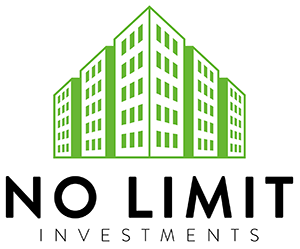What Are Business Credit Loans?
Business credit loans are financing tools that allow businesses to borrow money using the business’s credit profile, rather than the owner’s personal credit. These loans are particularly helpful for small business owners and investors seeking funding without tying their personal finances to business debt. Unlike traditional personal loans or credit cards, business credit loans are based on factors like business revenue, time in operation, and business credit scores.
These loans come in different forms, including:
- Term loans: Lump-sum funding repaid over a fixed period.
- Lines of credit: Flexible borrowing up to a set limit, ideal for managing cash flow.
- Invoice financing: Loans secured by outstanding invoices.
- Equipment financing: Loans used to purchase business equipment.
Understanding these variations is essential before applying because each loan type serves different purposes and carries different qualification standards.
How Do Business Credit Loans Work?
Business credit loans work similarly to personal credit loans, but they focus on the financial health of the business. Lenders assess:
- Business credit score (such as those from Dun & Bradstreet, Experian, or Equifax)
- Time in business
- Annual revenue
- Existing debts
- Industry risk
These loans often come with shorter terms and higher interest rates than personal loans, especially for businesses with limited credit history. However, the benefit is clear: they enable a business to build its credit profile and separate business and personal financial responsibilities (U.S. Small Business Administration).
What Are the Benefits of Business Credit Loans for Investors?
Real estate investors and business owners can benefit greatly from business credit loans when used strategically. Key advantages include:
- Preserving personal credit: Business loans are not tied to personal credit, which protects the borrower’s FICO score.
- Access to capital without dilution: Unlike equity financing, business credit loans don’t require giving up ownership.
- Credit building: Making on-time payments helps build the business’s credit profile, enabling better future loan terms.
- Cash flow management: Business lines of credit provide flexibility to manage day-to-day operations or unforeseen expenses.
For real estate investors, this can be the difference between closing on a new investment property or missing a deal due to lack of liquidity.
What Are the Requirements to Qualify for a Business Credit Loan?
While requirements vary by lender, most business credit loans require:
- A business operating for at least 6 to 24 months
- Annual revenue (typically $50,000 or more)
- A solid business credit score (Paydex score of 75+)
- Legal formation as an LLC, S-Corp, or corporation
- EIN (Employer Identification Number)
- Business bank account
Some lenders may also request a business plan, financial projections, or collateral. Startups may find it harder to qualify for these loans unless the founder provides a personal guarantee or pledges assets.
No Limit Investments simplifies this process by offering streamlined approval pathways for qualified borrowers. Learn more at https://nolimitinvestments.net.
How Do Business Credit Scores Affect Loan Eligibility?
A business credit score acts much like a personal credit score—it helps lenders determine the risk of lending to your business. The higher the score, the more likely you are to receive approval and favorable terms.
Here are some key scoring models:
- Dun & Bradstreet Paydex Score (0-100): Based on payment history.
- Experian Intelliscore Plus (1-100): Uses payment history, credit utilization, and public records.
- Equifax Business Credit Risk Score: Analyzes credit history, age, and delinquencies.
Improving your business credit can include:
- Paying vendors and suppliers on time
- Opening accounts with suppliers that report to business credit bureaus
- Reducing credit utilization
Business owners should regularly monitor their credit reports for errors or inaccuracies, just as they would with personal credit.
What Are the Common Mistakes Investors Make When Applying?
Many investors unknowingly disqualify themselves by:
- Applying without a clear funding purpose
- Using personal credit for business expenses
- Failing to separate business and personal finances
- Applying for the wrong type of loan
- Submitting incomplete applications
To avoid these pitfalls:
- Create a business plan or proposal with financial projections.
- Ensure your business structure and documents are in order.
- Check your business credit score before applying.
- Know what collateral (if any) you’re willing to offer.
At No Limit Investments, real estate investors receive personalized guidance to match their goals with the right loan product.
Where Can Investors Find the Best Business Credit Loan Options?
There are multiple sources for business credit loans:
- Traditional banks: Offer the lowest rates but require high credit scores and strong financials.
- Credit unions: May offer more flexible underwriting options for local businesses.
- Online lenders: Provide fast approvals, especially for newer businesses or lower credit profiles.
- Alternative lenders: Specialize in unique funding models, including real estate-backed financing.
That said, not all lenders understand the unique needs of real estate investors. It’s critical to work with a lender who can tailor loan structures around your investment goals, asset types, and income approach.
For real estate-focused investors, No Limit Investments is a trusted partner offering investor-centric solutions, quick approvals, and funding designed specifically for business-purpose and non-owner-occupied loans.
How Can Business Credit Loans Be Used Strategically in Real Estate?
Real estate investors can use business credit loans to:
- Acquire new properties
- Rehab or flip properties
- Cover holding costs
- Bridge short-term cash flow gaps
- Fund long-term buy and hold strategies
When paired with smart underwriting (such as evaluating rental yield or ARV), these loans can significantly scale a portfolio without overextending personal finances.
Tips for strategic use:
- Use credit lines for renovations or emergency costs
- Use term loans for down payments or acquisitions
- Reinvest returns into credit repayment to build even stronger business credit
No Limit Investments helps investors structure deals around these principles to maximize leverage and cash flow.
Why Should You Consider No Limit Investments for Business Credit Loans?

If you’re looking for fast, flexible, and investor-focused funding, No Limit Investments offers:
- Business-purpose loans tailored to real estate professionals
- No income documentation required for select loan types
- DSCR and asset-based underwriting options
- Nationwide loan programs
- Credit-building support and consulting
Visit https://nolimitinvestments.net to explore your funding options today and receive personalized support.
Final Thoughts
Business credit loans are an essential tool for real estate investors and entrepreneurs seeking to scale without sacrificing personal credit or ownership. By understanding how these loans work, what’s required to qualify, and how to use them strategically, you can unlock powerful funding options to support your business growth.
Avoid common pitfalls, check your business credit regularly, and seek out lenders who specialize in real estate-friendly solutions.
No Limit Investments is your go-to resource for investor-ready capital, flexible terms, and expert support. Call now to apply today and take your investments to the next level.
Works Cited
- “Build Your Business Credit.” U.S. Small Business Administration, www.sba.gov/article/2020/mar/02/build-your-business-credit. Accessed 22 July 2025.
- “Understanding Your Business Credit Scores.” Nav, www.nav.com/business-credit-scores/. Accessed 22 July 2025.
- “What Is a Business Credit Score?” Experian, www.experian.com/small-business/business-credit-score.jsp. Accessed 22 July 2025.
- “Business Loans.” U.S. News & World Report, www.usnews.com/loans/business-loans. Accessed 22 July 2025.
- “Business Credit Reports and Scores.” Equifax, www.equifax.com/business/credit-reports-scores/. Accessed 22 July 2025.
Frequently Asked Questions (FAQs)
- What is a business credit loan and how is it different from a personal loan?
A business credit loan is financing based on a business’s financial health and credit profile, not the owner’s personal credit. Unlike personal loans, these are tied to your business, helping separate personal and business finances while also building business credit. - What are the basic requirements to qualify for a business credit loan?
Most lenders require at least 6 to 24 months in business, annual revenue of $50,000 or more, a solid business credit score (like a Paydex score of 75+), an EIN, and a business bank account. Some may also request a business plan or collateral. - How does a business credit score affect loan approval?
Lenders use business credit scores to evaluate your creditworthiness. Higher scores can lead to better terms, higher loan amounts, and faster approvals. Timely payments, low credit utilization, and strong vendor relationships help improve your score. - What are common mistakes to avoid when applying for business credit loans?
Mistakes include applying without a clear funding purpose, mixing personal and business finances, choosing the wrong type of loan, and submitting incomplete applications. Being prepared with proper documentation and a business plan helps improve approval chances. - How can No Limit Investments help with business credit loans?
No Limit Investments offers investor-friendly business-purpose loans, quick approvals, and flexible underwriting—including options that don’t require income verification. Visit https://nolimitinvestments.net for tailored funding solutions.







